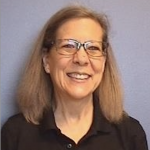Many underlying conditions can prevent proper healing of a wound, and may actually contribute to aggressive, painful wounds and sores on the body. Here are five questions you should ask yourself if you think you may need help from a wound care center.
- Do you currently have an open wound or sore on any part of the body?
- Have you had an open wound or sore for more than four weeks?
- Is the wound, or area around the wound discolored, producing odor, or excessive drainage?
- Have you been diagnosed with diabetes or peripheral vascular disease?
- Have you ever considered yourself “slow to heal”?
If you answered yes to any of the above questions, contact us for a referral to a wound care specialist.


